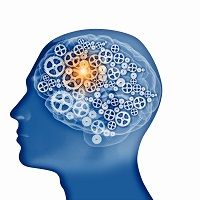Article
Growing Evidence that Music May Lead to Reduced Pain and Anxiety
Author(s):
Three recent studies – in three very different publications – add to a growing cache of evidence showing that music can have significant benefits for patients with pain.

Three recent studies — in three very different publications – add to a growing cache of evidence showing that music can have significant benefits for patients with pain.
Complementary Therapies in Medicine,
Clinical Rheumatology
The Lancet,
One study, appearing in found that music therapy can reduce postoperative pain and anxiety, and lower systolic blood pressure and heart rate in patients after thoracic surgery. Another study in suggests that music could be a potential non-pharmacologic intervention in pain management for fibromyalgia. And a third, a meta-analysis appearing in suggests that patients who listen to music before, during, or after surgery have less postoperative pain, anxiety, and need for pain medication.
Music has long been known to soothe the savage beast, including Mel Brooks’ Frankenstein and Bugs Bunny’s orange-haired beast. But the recent articles, all showing essentially the same results, may mean that music as a therapeutic tool is no longer the stuff of silly fiction.
Clinical Rheumatology
Complementary Therapies in Medicine
The study, for example, was a randomized clinical trial involving 37 outpatients with fibromyalgia and 21 control patients. It found significant reduction in pain in the listening music group. In the study, also a randomized controlled clinical trial, an experimental group of patients who underwent thoracic surgery received standard care and a 30-minute soft music intervention for three days, while the control group received only standard care. While there were no differences in diastolic blood pressure, respiratory rate, or patient-controlled anesthesia, the experimental group showed statistically significant decrease in pain, anxiety, systolic blood pressure and heart rate over time compared to the control group.
The Lancet
analysis looked at three randomized, controlled trials involving nearly 7,000 patients and found a distinct link between music in the operating theater and a significant reduction in postoperative pain, postoperative anxiety, and the need for postoperative pain relief medication. The patients in the analysis had undergone a variety of surgical procedures, with or without anesthesia, to any part of the body (except surgery to the head, neck, or central nervous system). Choice of music, timing and duration varied in all the studies analyzed, and evidence showed these factors made little difference to the outcome. Music was effective even when patients were under general anesthetic.
All three studies mirror a concept that makes sense yet has had little impact on clinical practice. Music is simple, non-invasive, and effective — and it doesn’t cost much! Its use can be controversial during surgical procedures, however, as there is some risk that it could distract from the clinicians performing the surgery.
Later this year, a research team will run a pilot study introducing music into operative settings at The Royal London Hospital, including women undergoing hysteroscopy and Caesarean sections.





